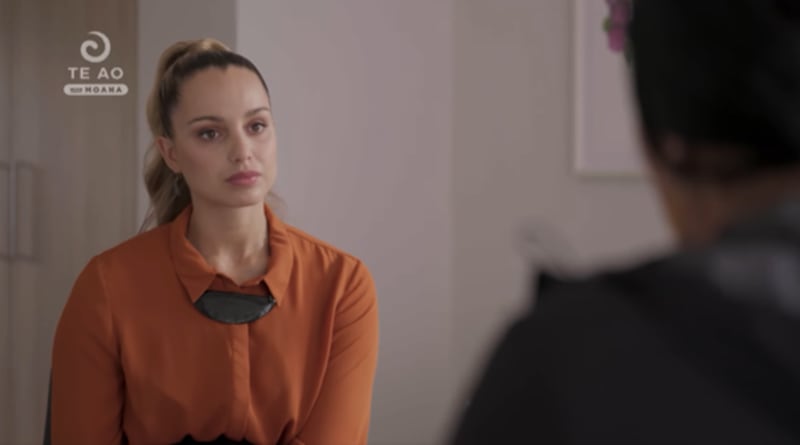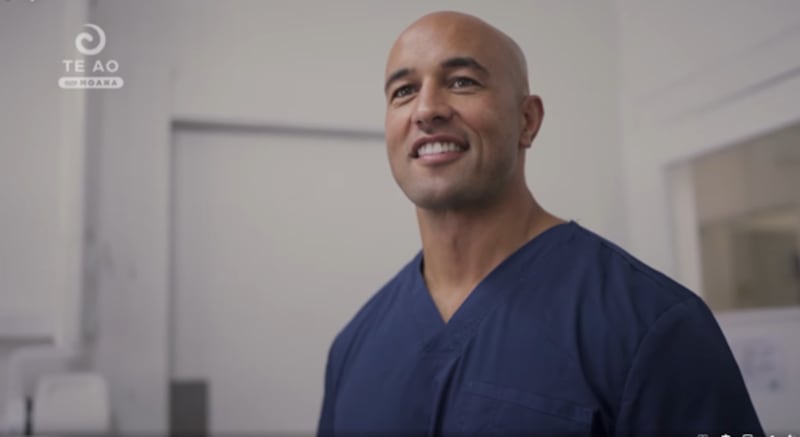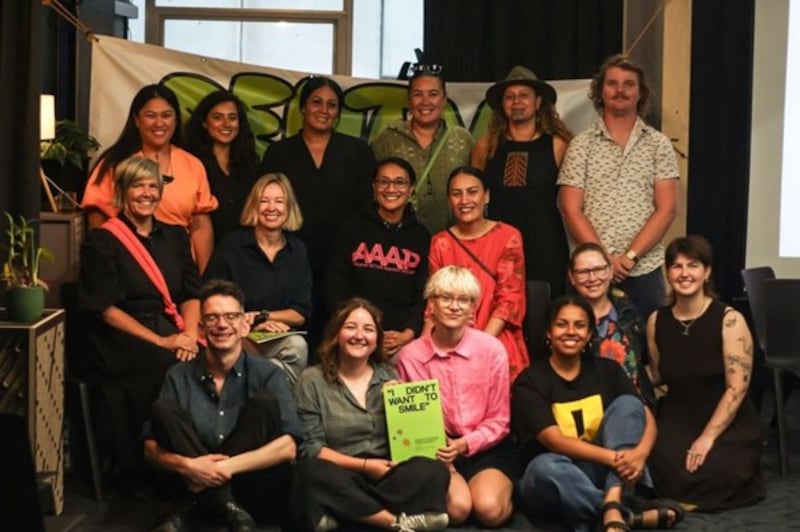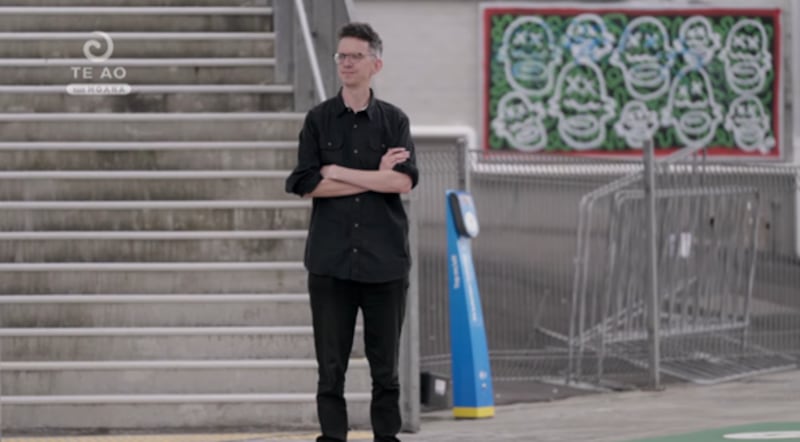Māmā of eight, ‘Aroha’*, has struggled with dental problems all her life and has lost several teeth in domestic violence incidents. It’s a pain she wears emotionally and physically - and one which has slipped through the fingers of the oral health care system in Aotearoa.
Jessica Tyson from Te Ao with Moana reports.
“I had no front tooth. I always used my hand to cover my mouth when I’d smile,” Aroha says.
“It totally affected my confidence. I couldn’t look at people…I always turned away. I always had my hand over my mouth every time I spoke to someone or spoke down.”
The stigma and shame Aroha experienced losing teeth affected her confidence to find work.
“A lot of jobs go off appearance. Your appearance is massive and that’s something I had to learn.”
Aroha was also raised in an environment surrounded by drugs and alcohol. She and her siblings were never taught how to care for their teeth.
“Unfortunately we live in that generational cycle and our oral healthcare is just one part of it. It’s followed on from my parents right through to us. It’s a normality. It’s an actual normality to be living with no teeth,” Aroha says.
A few years ago, Aroha felt the courage to get help for her teeth. She went to a local dentist and was charged $3000 for a plate, fillings, and extraction.
“I paid the money back to them but I should have paid the money back to the Ministry of Social Development (MSD). The dentist took the money, and MSD didn’t waive the debt—so I remain in debt to MSD for money I have already paid back to the dentist. That was a very frustrating and confusing time, and I felt really disempowered from that experience.”

Aroha’s teeth still needed work done after that treatment. So two and a half years ago, her MSD case manager helped organise to have her upper teeth all removed and dentures placed.
In total, Aroha is in debt to MSD for around $5400. As a single mother that’s a stretch financially and she will need to replace the dentures every three years.
“I pay off around $5 per week. It will take a lifetime to pay this off.”
She says, if dental care was free when she was younger, it would have changed her life.
“I would have visited the dentist. I would’ve kept up with my oral healthcare and that cycle wouldn’t have followed my children either.”

Reaching rural areas
Dr Hyrum Martin, of Ngāti Kahungunu and Ngāti Porou, is the owner and director of dentist practise, Waikato Dental.
“It’s pretty treacherous for some people. Lots of people are about three to four hours away from any dental clinic, so we’re seeing lots of problems that have been left, lots of neglect and that’s just because people can’t afford to get to a dentist,” says Martin.
He recently gave up working in the clinic to start running mobile clinics. He’s visited, Wairoa, Kāwhia, and Raglan and hopes to reach more of Te Tai Rāwhiti.

“We see lots of infected mouths, problems that would’ve been in people’s mouths for years, swollen faces. [At] some points we aren’t even able to treat some individuals just because of the amount of infection that’s in their mouth. So the problem is too big for individuals.”
Martin says the problems start in childhood.
“We see lots of problems with kids that we should see in our later years of life and so it is disheartening because the solutions to the problem we don’t know yet.”

A deeper systemic issue
Executive member of Te Ao Mārama, the NZ Māori Dental Association Sam Carrington, says the poor oral health statistics among Māori reflect a deeper systemic issue since Māori weren’t at the table when the oral health care system was being developed.
“The oral healthcare system was set up for Pākehā, it advantages Pākehā, it assumes that being Pākehā means that you can fit into a system which will give you better oral health. Unfortunately, that doesn’t work for Māori and other ethnicities,” says Carrington.
“So because the current oral health system that we have in Aotearoa, doesn’t have that in the forefront, whānau Māori is as its main kind of population or people that it needs to help, it just perpetuates these oral health inequities.”
Research shows in the 19th century Māori often had better oral health than Pākehā because they had less access to sugar. Māori oral health appeared to deteriorate rapidly when they adopted more westernised diets.
“Other social determinants factor into it as well, like poverty, diet, education and unfortunately all of those social determinants of health have negative impacts for us because of the system that was put in place by Pākehā through colonisation around 185 years ago.”
Half of NZ adults can’t afford dental care
The average dental appointment bill is $353 — about half of an adult minimum-wage earner’s weekly income.
In Aotearoa, routine non-orthodontic oral healthcare is free for people under the age of 18. But for adults, it’s not free and is accessed through private oral health workers.
Therefore, a significant number of adults don’t access care. The latest NZ Health Survey identified almost half, 44.9 per cent, of New Zealanders reported unmet needs in relation to dental care due to cost. These rates were higher for Māori at 54.1 per cent and Pasifika at 57.2 per cent.

Calls for free care
Advocacy group Dental for All is calling for free oral health care for everybody as part of a public health system consistent with Te Tiriti o Waitangi.
Dental for All estimates the cost of not acting is much more in lost productivity and well-being, according to their report.
Campaigner and lawyer Max Harris says, “People are not going to work and are needing to take sick days or people are not even getting a job in the first place.”
In their report, Dental for All had an economist to research the costs of dental care in Aotearoa.
“It basically costs us more at the moment not to bring dental into the public healthcare system than it would to take real action,” says Harris.
“We spend tens of billions on infrastructure every year. Almost 15 billion allocated for tax cuts. That was a political choice at the last budget. So, this is not more expensive than other things the government chooses to fund.”

Support available is ‘not really helping’
ACC covers some dental treatment costs. Some emergency dental care can be accessed in a public hospital, says Harris.
Financial support is available to adults through Work and Income NZ (WINZ). Those on low income or benefits can access immediate treatment and can apply for up to $1000 per year. However, there are strict income limits.
“You have to earn quite a low amount of money, and you have to have pretty much no money in the bank to be able to get that, and lots of people say that’s actually not really helping.”
Harris says the reason that dental is outside our public healthcare system isn’t a “medical reason, or a good policy reason”.
“It’s just that when we first set up a public healthcare system in the mid-1900s, dentists lobbied to keep dental care outside of the system and they were essentially worried about their profits being restricted,” says Harris.
NZDA doesn’t support free dental care
The New Zealand Dental Association, which has a membership of more than 3,000 health workers, does not support universal free dental care, says director of dental policy Robin Whyman.
“The dentists and the businesses that run dental businesses have to remain viable in order to be able to continue to deliver care and if they can’t do that in a way which enables them to make enough money to continue to be viable and to invest in their business they can’t survive,” says Whyman.
Whyman says universal free dental care in Aotearoa is “unattainable”.
“You’ve got to think about the affordability to the system and we know that there are lots of pressures on the health budget. But beyond that, you’ve also got to think about, do you actually have a big enough workforce.”
But Harris says the government has “dropped the ball” when working to expand the workforce.
“There are really credible ways that you could ensure that your workforce was big enough, expand the number of places, maybe change the immigration approach to dentists to ensure that people are coming in from outside of New Zealand.”
Meanwhile, the NZDA does support the need for increased funding for services run “for Māori by Māori”.
“We should be thinking hard about where we increase that funded access and prioritise, particularly in groups, where we think the highest needs are,” says Whyman.
Breach of Te Tiriti
In a report exploring the impacts of poor oral health on Māori adults through a Te Tiriti lens, researchers found the Crown has breached Te Tiriti in failing to prioritise equitable approaches to oral healthcare.
Researchers called it “imperative that oral health services delivered in Aotearoa are driven by clinicians who are culturally responsive to Māori. This is especially important in a profession where over one-third of dentists and dental specialists are overseas-qualified.”
In 2018, the Waitangi Tribunal’s Health Service and Outcomes Inquiry Wai 2575 started looking into the Crown’s response to health inequities experienced by Māori.
Te Ao Mārama tūmuaki Leeann Waaka says recommendations out of Wai 2575 are that Māori must be able to have the opportunity to be able to initiate services that are “from Māori, for Māori by Māori.”
“Māori health providers…already doing this, need to be better or more well-resourced to be able to incorporate and include oral health as a provider arm for whānau.”
At the last election, Harris says dental care was an issue covered in policies made by the Green Party, Te Pāti Māori, Labour and New Zealand First.
“Our aim is to make dental central at the next election so that all parties feel like they have to address this crisis in Aotearoa New Zealand, including from a Tiriti o Waitangi perspective,” says Harris.
“We’ll be continuing to talk about this right up through to the next election and beyond. Although we hope at that point, we’ll get our universal Te Tiriti consistent dental delivered.”
*To protect the identity of the person we interviewed, we refer to her as “Aroha” in this story.
